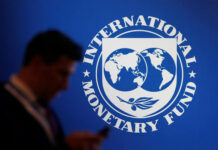On Thursday, February 3, the State Bank of Pakistan instructed banks to provide free person-to-person (P2P) payments services under Raast, the country’s digital payments system. The launch of this service is a major milestone: Pakistan was a first mover when it came to a digital identity system but fell behind peer economies in leveraging digital identity to enable payments. A ubiquitous digital payments ecosystem, which provides instant, reliable, and zero-cost transfer facilities to citizens, can help transform the country’s economy and catalyze new investments in financial services.
For decades, the country’s policymakers have tried, with limited success, to document the economy. These efforts have been made by successive governments, civilian and military, but they all have been unable to incentivize citizens and businesses to be transparent about their economic dealings. A major issue indeed is a culture of evasion, which is reinforced by a state that is unable to provide efficient services which reinforce the social contract. However, we must not discount the fact that the country’s financial services ecosystem has been broken, which means that it has been easy and convenient to transact in cash and not bother with the complications of operating in the formal economy.
This is why Raast has serious potential: the adoption of digital payments at the micro level, through a convenient and no-cost platform, would make cash a more burdensome mode of transactions versus digital payments. The coronavirus pandemic has already changed consumer habits in Pakistan and around the world, and Raast will only reinforce these behavioral changes. As this system scales up, digital-first fintech providers are likely to step in and innovate for the masses, disrupting old-economy banks that have failed in their duty to promote financial inclusion. This disruption would further accelerate consumer adoption, generating a virtuous self-reinforcing cycle that formalizes payments, enhances access to credit, and provides on-ramps for citizens to participate in the formal savings market.
A similar story has played out across the border in India, where the Unified Payments Interface (UPI) has driven a fintech revolution. PhonePe, the leader in the digital payments ecosystem in India, has digitized over 25 million kiranas, allowing them to have digital storefronts, credit histories, and automated sales and tax data, all of which makes it easy for millions of small businesses to formalize and digitize. As a result, India’s fintech ecosystem raised over $9 billion in 2021 alone, a record amount.
Pakistan is moving in a similar direction, but accelerating this shift requires policy makers to have a forward-looking approach that does not just stop at the Raast rollout. Digital payments will not become ubiquitous so long as barriers to accessing internet data remain high. According to a recent Tabadlab report, only 9 percent of cell phone towers are connected to fiber; the gap presents a $6 billion investment opportunity in the country. To realize this opportunity, the policy environment must be tweaked to reduce the tax burden on purchase of low-cost mobile phones and internet connectivity, incentivize investment in fiber connectivity, and unlock financing to make it cheaper for the private sector to invest in digital connectivity.
The government should also consider bold proposals that lower the overall cost of a digital transaction. For example, payments made through Raast could have a lower sales tax rate, thereby incentivizing the consumer to demand that a business accept digital payments. Such a proposal has already been tested in Punjab in the restaurant industry and has shown success. The short-term loss of revenue, in this instance, would be offset by accelerated digitization of payments in the consumer economy, providing the state with a more holistic view into the size of the overall economy, which can then be taxed at a lower overall rate to generate higher revenues. Another policy intervention that must be paid is with regards to sharing of credit history developed through analysis of payments data: this can unlock financing for small and medium businesses, who currently face tremendous barriers in access finance through traditional banking channels. By providing these entrepreneurs with access to finance based on their digital payment history would incentivize them to switch away from cash. This would kill two birds with one stone, as entrepreneurs would both document themselves and adopt formal finance to invest in and grow their business.
Raast opens an exciting new world full of possibilities for the Pakistani economy. To build momentum, policy makers ought to look beyond the next few months. Such an approach can create an enabling environment that can bring about a fintech revolution in Pakistan, empowering consumers and small businesses, and also formalizing the economy.
























Yes RAAST is the best payment system in Pakistan, best digital system b/w individuals and business as well as corporate payment